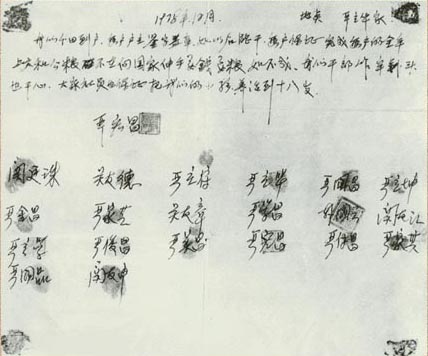
Launched in the early 1980s, the household responsibility system was an agriculture production system, which allowed households to contract land, machinery and other facilities from collective organizations. The aim was to preserve basic unified management of the collective economy, while contracting out land and other goods to households. Households could make operating decisions independently within the limits set by the contract agreement, and could freely dispose of surplus production over and above national and collective quotas.
The household responsibility system was created by the peasants but spread nationwide with the support of the central government. More than 93 percent of production teams had adopted the system by 1983. The system supplanted the people’s commune, and demonstrated the value of unified management combined with the enthusiasm of the peasants. It suited the nature of agriculture and the stage of development of the productive forces in rural areas.
(China.org.cn September 16, 2009)